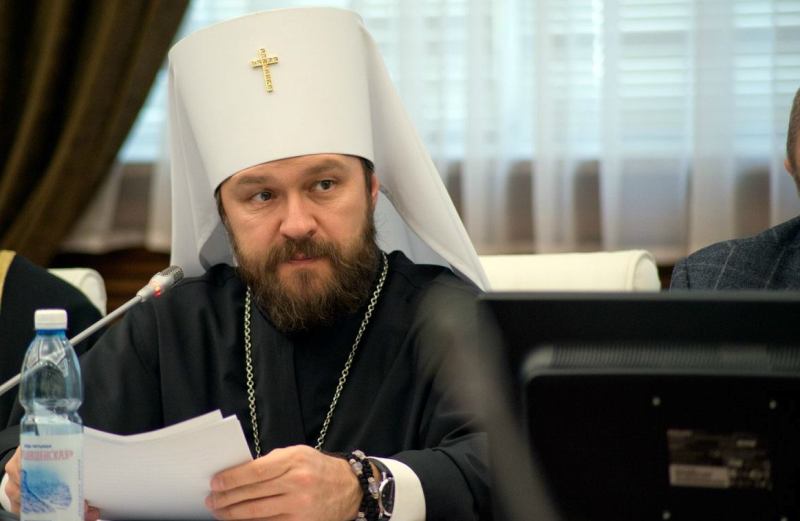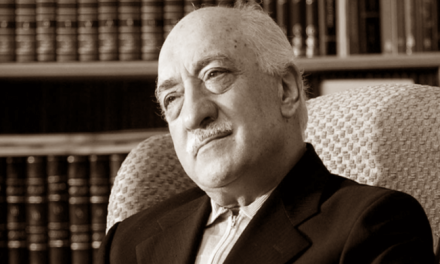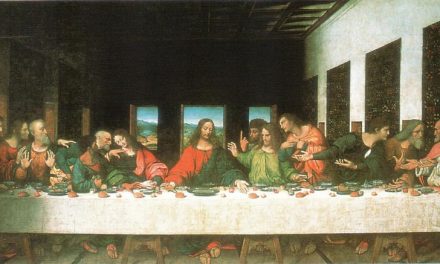by Sotiris Mitralexis, Public Orthodoxy
Most observers are growing increasingly more worried about the drifting apart of Constantinople and Moscow on the basis of Ukraine’s imminent autocephaly. I would like to make a case to the contrary. There are indications that the possibility of a full-blown schism between two halves of the Orthodox world (rather than between two patriarchates) has lessened recently due to Moscow’s problematic handling of the crisis during the last few weeks.
A necessary disclaimer: this essay is not about theology, but about (ecclesiastical) politics. And it is not about the Ukraine (ecclesiastical) crisis in general, or its geopolitical context, but specifically about Moscow’s recent handling of the crisis. It is most unfortunate that it has become necessary to treat seminal patriarchates as if these were political parties/players engaging in positioning and information warfare, but this does not make the current lamentable situation less of a reality.
The up-until-recently-justified fear of many is that, following the granting of a Tomos of autocephaly from the Ecumenical Patriarchate to Kiev/Ukraine (and not to one of the currently non-canonical churches), Moscow would not recognize the new church and its primate and would break its communion with Constantinople, leading a number of autocephalous churches under its influence to do the same. This would lead the Orthodox world to a “new great schism,” a fragmented state between two “halves” (with varying estimates as to which church would go to which direction, etc.) without communion with one another. Thankfully, however, the overabundant trigger-happiness of the Moscow Patriarchate seems to have undermined this possibility in the following four ways:
Initially and almost tautologically, the autocephalous churches’ litmus test for the recognition, or lack thereof, of the legitimacy of the imminent granting of a Ukrainian Tomos would have revolved around the (non-)recognition of the new church and its primate. This would show us which church is on which side of the divide. However, Moscow has set the bar exceedingly high. By already having proceeded to a partial schism, by ceasing communion and co-celebration at the hierarchical level, and already having declared that a full ceasing of communion with Constantinople will be effected the moment autocephaly is granted, Moscow has rendered the possible non-recognition of the future Ukrainian church and its primate by certain churches less important. Moscow’s action ensures that the only thing that will truly matter at that grave hour will be whether other autocephalous Orthodox churches will also break communion with the Ecumenical Patriarchate and the churches in communion with it. However, it is much easier for Russophile churches not to recognize Ukraine than to follow Moscow to a full-blown breaking of communion with the rest of the Orthodox world. That is, the criterion that would have been the focal point of a possible schism does not cut it anymore. Consequently, Moscow’s violent escalation might prove to be, paradoxically and counter-intuitively, what will hold the Orthodox world together and ensure the situation remains largely a feud between Moscow and Constantinople (entailing a temporary ceasing of communion between the two) rather than a true schism in the Orthodox world.
Secondly, Moscow has not merely articulated its position clearly and forcefully; it has also marshalled certain suboptimal, if not contradictory arguments that weaken its case, even in the eyes of friendly churches. Moscow contends that only a Pan-Orthodox council may grant autocephaly and not just one patriarchate, not even the EP with its conciliarly-granted privileges—however, Moscow claims to have given autocephaly to the Orthodox Church in America unilaterally without need for any pan-Orthodox consensus and to possess the right to do so. Moscow recommends a pan-Orthodox scholarly conference to discuss the issue—while it abstained from the 2016 pan-Orthodox council, after having first dictated that the council take place outside Turkey to guarantee its participation. Moscow now invokes the pre-synodal discussions of the churches in view of the 2016 council—the very same council it attempted to torpedo by not showing up. Moscow does not recognize any Constantinopolitan right of appeal (ἔκκλητον). And Moscow prompts national autocephalous churches and patriarchates to speak up against the “ethnophyletism” of a Ukrainian autocephaly, as long as it is not their own “ethnophyletic” autocephaly. Logically, these arguments leave much to be desired. Moscow could have kept its arguments to a minimum: i.e., the claim that Ukraine is Russia’s own canonical territory and thus outside Constantinople’s jurisdiction, the claim that the Ecumenical Patriarchate trespasses jurisdictionally, and the claim that the current political situation in Ukraine results from a civil war and thus that the present moment is unfit to discuss Ukraine’s ecclesiastical future. By opting for a maximalism that includes contradictory claims, Moscow weakens its case, something which does not go unnoticed by the observing autocephalous churches.
This maximalism extends well beyond the Ukraine crisis itself and forms my third point. Rather than stick to the matter at hand and present Ukraine’s imminent autocephaly as a jurisdictional and, by extension, ecclesiological problem, Moscow has decided to put everything on the table. This is not a question of jurisdiction, says Moscow via its official and unofficial channels, but of Constantinople deviating from the faith itself: a question of “the heresy of papism,” for instance. Moscow cites “a century” of ecclesiastical warfare with Constantinople; it puts the Council of Ferrara-Florence on the table; it describes an exclusively decorative primacy within the Orthodox world (provided that said decorative primacy belongs to the EP, that is); it claims that the EP is not following the decisions of the Council of Crete, which Moscow does not accept either way; it even laments Constantinople’s decision to consider, on an individual basis, second marriages for widowed and deserted priests within Constantinople’s own jurisdiction. Moscow’s backlash addresses every conceivable and inconceivable issue beyond Ukraine itself, framing the current disagreement on jurisdiction and autocephaly as a question of faith and heresy. What shines through this all-inclusive argumentation is precisely the “Third Rome’s” claim for a decidedly non-decorative primacy in the Orthodox world—one that is only possible through schism—since the Ecumenical Patriarchate is not portrayed merely as jurisdictionally trespassing, but as fallen. However, how many autocephalous churches would be prepared to immediately undersign thisgrand claim, rather than merely siding with Moscow on the particular issue of Ukraine’s autocephaly?
The fourth point is a variation of the third; it concerns the violence with which Moscow vests its official language during the current crisis. For example, early September saw Metropolitan Hilarion of Volokolamsk claiming that “the Patriarchate of Constantinople has been developing some kind of papistical doctrine, papistical self-identification”; “the Patriarchate of Constantinople [acts] basely and treacherously”; “they are trying to do their dirty deed”; quite bold words, given that they emanate from the Moscow Patriarchate’s official representative vis-à-vis the other churches. Further, Metropolitan Hilarion offers his purely political comments and estimations in that same interview (“the days of the current Ukrainian authorities are numbered”), leading one to wonder whether this inability to differentiate the ecclesial from the political also occurs in the Moscow Patriarchate’s relations with the authorities of the Russian Federation. The unofficial channels of the Moscow Patriarchate, including venues such as the Anglophone Orthochristian.com or Greece’s Romfea.gr, give a much more violent account of the Russian side’s choice of language; let alone the legion in the Anglophone, Graecophone, and Slavophone blogosphere, which paints a picture bleaker still. The bottom line is, Moscow seems to be regarding the current crisis as a dress rehearsal for the future exercise of a formal or informal primacy upon those that would acquiescence to it. However, does Moscow’s violent handling of this crisis, both in word and in deed, ensure potential allies of its steady hand of peaceful leadership, or the opposite?
All these indications point to the possibility of avoiding a great schism, precisely due to Moscow’s rush for the nuclear option in a way that turns Orthodoxy’s wider, long-term rupture less realistic; a full cessation of communion entails a price that most autocephalous churches would not be eager to pay (including, indicatively, the entrance of pilgrims to Mount Athos along with other Orthodox believers). Deeply tragic as this might be, a situation in which Moscow is not in communion with Constantinople for a span of time while everybody else is in communion with everybody else, and Ukraine’s autocephaly and primate is not recognized by certain churches for a span of time (in the same way that the OCA’s autocephaly is currently not recognized by others), is very far from Moscow’s promises and threats that a “schism greater than 1054” is imminent. May God aid us to sin less than our intentions seem to be dictating.
Sotiris Mitralexis is a teaching fellow at the University of Athens and a visiting research fellow at the University of Winchester.
*This essay was authored prior to the Ecumenical Patriarchate’s October 11 announcement.



















